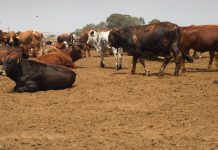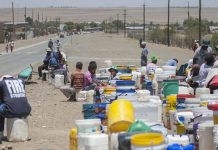
/
RSS Feed
A key border crossing between Tanzania and Malawi fell quiet on Thursday, as a growing regional trade spat prompted Tanzania to ban agricultural imports from both Malawi and South Africa.
The ban, which took effect at midnight, is in response to what Tanzania describes as unfair restrictions on its own exports. The country’s Agriculture Minister Hussein Bashe announced the move, saying, “We are taking this step to protect our business interests… in business, we must all respect each other.”
The escalation comes amid broader efforts on the continent to promote economic integration through the African Continental Free Trade Area (AfCFTA), which aims to ease trade barriers across Africa.
What sparked the dispute?
-
South Africa has long prohibited Tanzanian banana imports.
-
Malawi, in March, imposed a temporary ban on imports of products like flour, rice, ginger, bananas, and maize from Tanzania and other nations, citing a need to protect local farmers.















